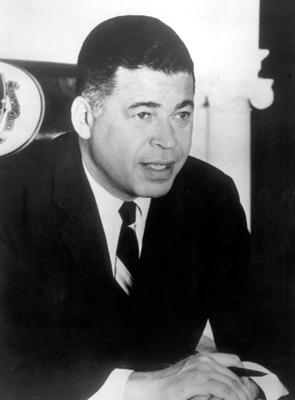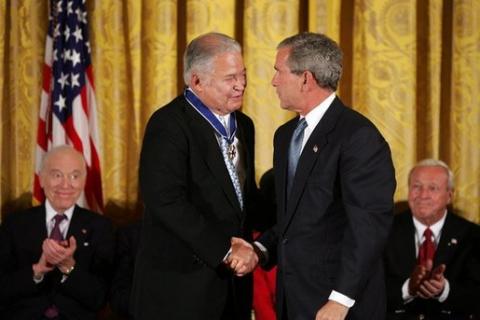Recent Blog Posts
Guest Blogger: Nancy Amidei, Civic Engagement Project
Watching events unfold in D.C. in recent weeks with so much partisan rancor, conjured up memories of working in D.C. My boss, U.S. Senator George McGovern (D-SD), regularly worked across the aisle with Republican Senators - Bob Dole, Chuck Percy, Jacob Javits, and others. And he was not alone; there was a different approach to governing.
Then, I noticed that October 26 was the birthday of former U.S. Senator Edward Brooke. When Brooke won his seat in 1966, he was the first African American popularly elected to the U.S. Senate. A Republican from Massachusetts, he was a veteran, and a former State’s Attorney General.
Born in 1919 (and still living), his name should be known to just about anybody who cares about fair and affordable housing because of “the Brooke Amendment”, the cap on the rents low-income people are expected to pay for housing. The original standard, no more than 25% of income, has already been eroded. It's now 30%. And as should be obvious, if 30% of your income is tied up just to stay housed, you don’t have much left for the rest of life’s necessities. But at least – thanks to Ed Brooke – there is a limit on what people can be charged to live in subsidized housing.
|
Brooke, a Republican, together with Minnesota Senator Walter Mondale, a Democrat, co-authored the Fair Housing Act, which included the 25% standard. His involvement and the bill’s success were even more remarkable than might be obvious now. He and Mondale were both “freshman” senators, in the second year of their first terms. In other words, they had no seniority, a factor much valued in the Senate. Plus, they were fighting for fair housing for people who were not just poor, but – as everyone in the Senate knew – also people of color. (As a returning veteran, Brooke himself had experienced discrimination from landlords unwilling to rent to him and his family.) |
Image

|
At the time, the Civil Rights Act was still new. In much of the country, neighborhoods, schools, businesses, the military, and even churches were strictly segregated by race. And notions like “equal employment” or “fair housing” were instantly, viciously, fought.
Image

Edward Brooke received the Presidential Medal of Freedom in 2004. |
Every time Brooke and Mondale tried to get a vote on their Fair Housing Bill, entrenched Senate bigots with much more seniority filibustered it. There must have been enormous pressure on Brooke to just take his bill and get lost. Happily for all of the millions whose lives have been affected by the Fair Housing Act, he didn’t. And, after the Reverend Martin Luther King, Jr. was assassinated in April of 1968, the bill was quickly brought up for a vote, passed by the Senate and House, and signed into law by President Lyndon Johnson. |
Brooke served two terms in the Senate until 1978, working for many issues of race and economic fairness. Then, post-Senate, he chaired the Board of the National Low Income Housing Coalition.
So, a happy birthday toast to a hero of the affordable housing movement Ed Brooke! Perhaps the most appropriate way we can commemorate is to pledge to follow the Housing Alliance during the coming legislative sessions. They’ll provide easy ways for you to advocate to your elected official to protect fair and affordable housing laws and policies at both the federal and state levels. They’ll also keep you informed of the latest developments in this and the other Washington about affordable housing and homelessness. You can join their advocates email list here, like them on Facebook, and follow them on Twitter. Ed Brooke was one politician who made a difference. But he couldn’t have made it happen without people like you behind him!
Editor's note: In the 80s, Senator Brooke also served as chair of the National Low Income Housing Coalition. They also have this great tribute to Senator Brooke at their blog here.


Add new comment